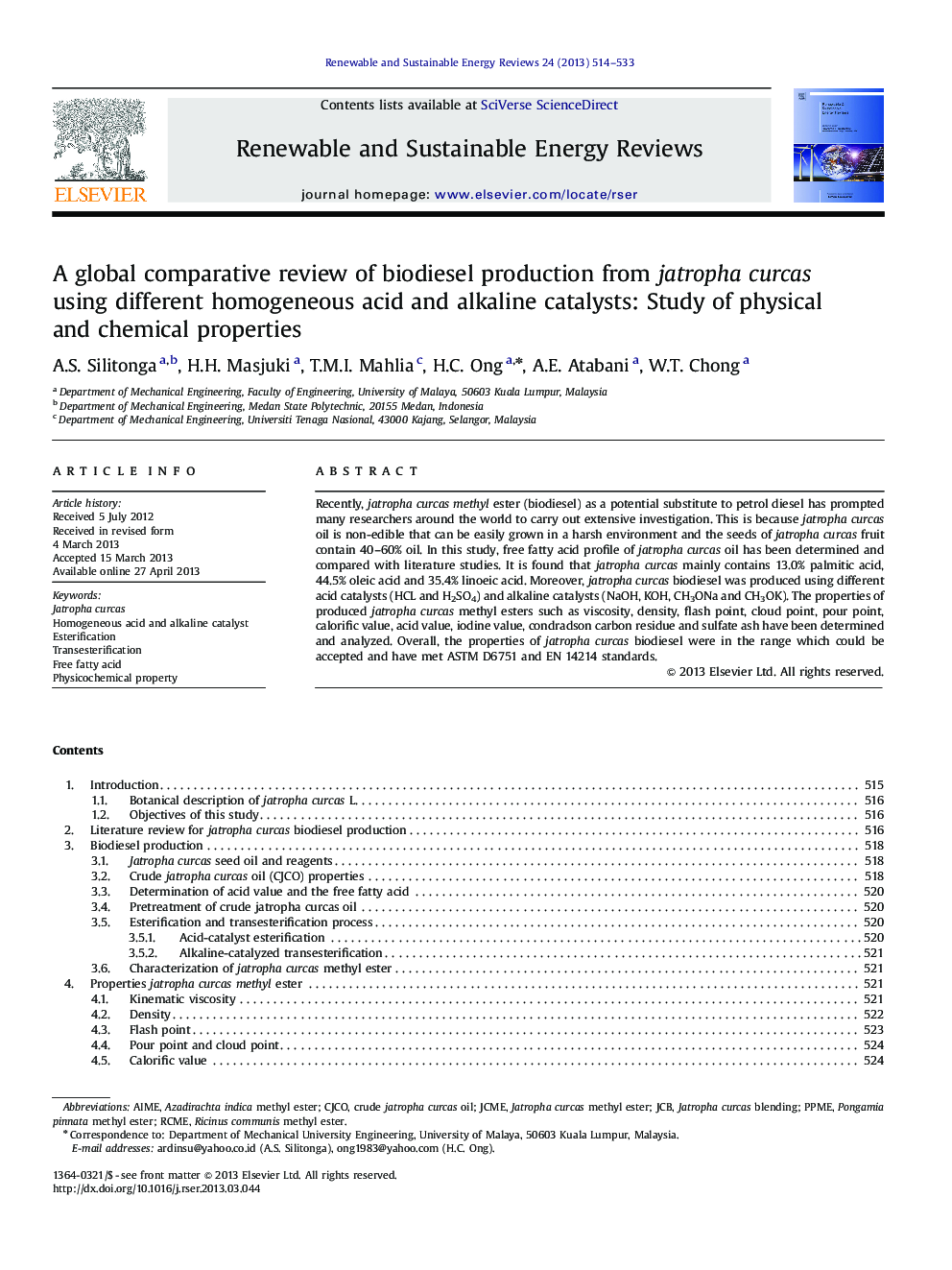| Article ID | Journal | Published Year | Pages | File Type |
|---|---|---|---|---|
| 1750238 | Renewable and Sustainable Energy Reviews | 2013 | 20 Pages |
Abstract
Recently, jatropha curcas methyl ester (biodiesel) as a potential substitute to petrol diesel has prompted many researchers around the world to carry out extensive investigation. This is because jatropha curcas oil is non-edible that can be easily grown in a harsh environment and the seeds of jatropha curcas fruit contain 40-60% oil. In this study, free fatty acid profile of jatropha curcas oil has been determined and compared with literature studies. It is found that jatropha curcas mainly contains 13.0% palmitic acid, 44.5% oleic acid and 35.4% linoeic acid. Moreover, jatropha curcas biodiesel was produced using different acid catalysts (HCL and H2SO4) and alkaline catalysts (NaOH, KOH, CH3ONa and CH3OK). The properties of produced jatropha curcas methyl esters such as viscosity, density, flash point, cloud point, pour point, calorific value, acid value, iodine value, condradson carbon residue and sulfate ash have been determined and analyzed. Overall, the properties of jatropha curcas biodiesel were in the range which could be accepted and have met ASTM D6751 and EN 14214 standards.
Keywords
Related Topics
Physical Sciences and Engineering
Energy
Renewable Energy, Sustainability and the Environment
Authors
A.S. Silitonga, H.H. Masjuki, T.M.I. Mahlia, H.C. Ong, A.E. Atabani, W.T. Chong,
